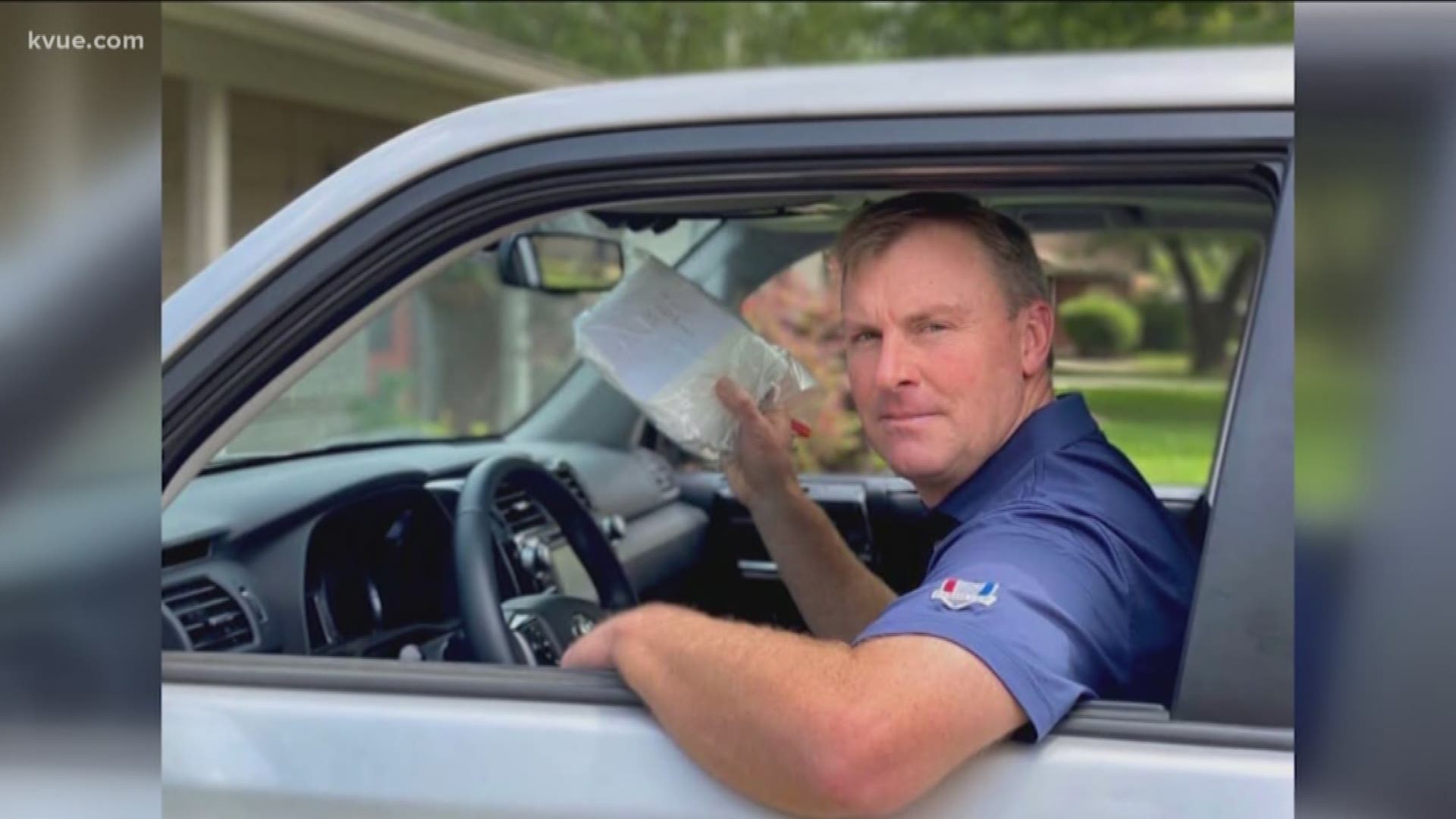AUSTIN, Texas — On Tuesday, Tom Banning got a call that a U-Haul truck full of personal protective equipment masks arrived in Austin. A golf friend asked if he knew anyone who needed them.
“Without hesitating, I picked up the phone, called some practices in Dallas, in Houston and in Austin, in San Antonio, and the need was, ‘Please bring whatever you can,’” Banning said.
According to Banning, his friend had shipped about 525,000 masks from Mexico to deliver them across Texas. His friend had connections to facilities in the oil and gas industry that recently transitioned from "producing materials for oil and gas field workers" to masks.
"They had a product that, frankly, did not exist in Texas," Banning said.
The masks came in cardboard boxes of 1,500. Around 350 boxes filled the back of the U-Haul when Banning arrived at a warehouse in Austin.
Banning said a Dallas practice had sent a driver to pick up boxes of the masks. He sent another driver down to San Antonio with masks. Others came from across the state to pick up what they could.
“Texas Organization of Rural and Community Hospitals took 40 cases," Banning said. "There are hospitals in rural areas across Texas that are in pretty desperate straits. They actually had a hospital in Hereford, Texas, which is up near Amarillo, fly a plane down to pick up some supplies.”
TAFP sent an email out to physicians and doctors in the Austin area, saying in part that Banning had access to 1,500, asking how many they would they need. In the email, Banning warned these masks were not FDA-certified, but met the specifications the FDA called for.
Banning has no more masks to deliver.
For weeks, Austin-based doctors have called for more PPE, citing a soon-desperate need to protect healthcare workers on the front lines of the COVID-19 pandemic. Banning, who delivered 1,500 masks to 37 Austin-based practices, wants to see more done to help small, family practices.
"These physicians are not only putting their lives on the line, but their financial wellbeing on the line," Banning said. "They’re sort of in the back of the bus in terms of getting access to these PPE even though they’re the ones on the front lines seeing patients. We’re trying to keep people away from the emergency room; we’re trying to keep people away from the hospital."
RELATED:
One doctor in North Austin responded to Banning's email asking for 30 masks. Dr. Erica Swegler runs Beacon Family Health Care on Steck Avenue. She normally does not have masks or any other PPE on-hand.
Up until last week, she had gloves and three protective gowns in her practice. The gowns, she said, came from somebody who had them left over and did not need them.
"We would have no reason to keep those in stock until all this happened," Swegler said. "We’ve had to totally improvise. I mean, what I usually have on hand are gloves."
Swegler's practice diagnosed a COVID-19 positive patient about 10 days ago, but she's confident she had come into contact with patients showing mild coronavirus symptoms.
"Before that positive, we were only wearing masks when we felt somebody might be a risk," Swgler said. "Now, our policy is we’re wearing masks – two masks a day, one in the morning throughout the morning and one in the afternoon that I expect the staff to have on 100% of the time."
Swegler only asked for 30 masks. She has four members in her office that she expects to wear two a day. That means those masks will only last her office about 10 days, and she has no idea where the next masks will come from, assuming she is able to get any.
"The N95 masks that I got Wednesday for the first time is the first time in this entire time that I’ve had a mask that would protect me from the virus," Swegler said.
Gov. Greg Abbott announced on Tuesday the state-created Supply Chain Strike Force will spend more than $80 million on getting masks and other PPE for doctors across the state. Abbott said to expect as many as 200,000 masks per day coming into Texas.
It's doctors like Swegler that Banning is most worried about.
"The system should not be treating them this way," Banning said. "It's going to have long-term ramifications on physician morale, on burnout, on their ability to practice and maintain a practice going forward. That’s what’s keeping me up at night is how are we treating a profession that we are so desperately reliant on like this?"
PEOPLE ARE ALSO READING:

